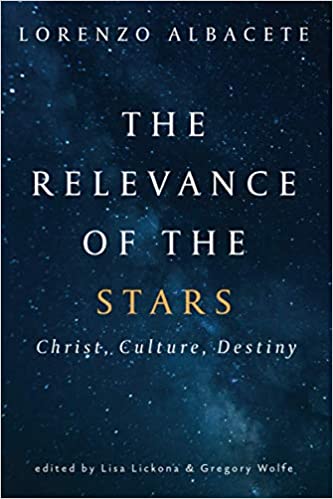During John Paul II’s history-making 1998 visit to Cuba, I was at lunch in a Havana paladar with various Americans and Latin Americans. Lorenzo Albacete, a priest from Puerto Rico, notorious in the United States for his brilliance – and eccentricities – was among us. Charlie Rangel, a larger-than-life, already-30-year Congressman from New York, walked in and started back-slapping us – “Hey, fellas!” – as if he were home, doing a ward stump. But he stopped, and in beautiful NewYorican, said: “Hey Lorenszo, I wuz wit Fidel fuh two ah-wers last night, and all he wanted to tawk about (pointing) wuz yoo!”
Albacete had just written a remarkable article in the New York Times Magazine, explaining the global influence of both Castro and JPII – and the large moral differences between them. Like all terminal narcissists, Fidel relished the visibility, even though the portrait was, to say the least, not entirely flattering.
Albacete started adult life as an astrophysicist, doing government aerospace research, before he felt called to the priesthood. He taught in various places – even served briefly as president of the Catholic University of Puerto Rico. He wrote a couple of books, notably God at the Ritz: Attraction to Infinity. I reviewed it when it came out (here) and see now that I said, “Albacete’s constant theme is not that worldly desires. . .are crowding out religious principles, though that happens in every age. His much more interesting contention is that modern desire is not nearly passionate enough.” We content ourselves with paltry pursuits – wealth, power, influence – when both science and religion lay before us a wonder-full cosmos.
But you were most amazed just hearing him talk – which he did at length and to great effect, and not only to Catholics, but to a strange menagerie of liberal journalists, intellectuals, TV moguls, etc. Boston’s Cardinal Sean O’Malley got him exactly right, “Graham Greene, Evelyn Waugh and Garcia Marquez together did not have enough imagination and genius to invent Father Lorenzo Albacete Cintrón.”
You got a sense of that in the pyrotechnics of God at the Ritz. But now, thanks to the work of Gregory Wolfe and Lisa Lickona, also in a collection of his essays, The Relevance of the Stars: Christ, Culture, and Destiny. (BTW, Wolfe has created a new imprint Slant Books, an important publishing venture aimed at exploring Christianity and contemporary culture.)
As the title suggests, Albacete addresses both modern science and current theology, but also the limits of purely intellectual exercises – important as those are. It was friendships – with Karol Wojtyla, before his papacy, and Luigi Giussani, founder of the renewal movement Communion and Liberation – that helped him realize the even greater importance of relationships to persons, particularly Jesus.

The opening chapter takes us to the heart of many modern confusions. In a strange way, reminiscent of no one so much as Dante, Albacete asks – as did Giussani before him – what does much of what we get involved in have to do “with the stars”? By that he means something great and transcendent, something “other” than and far beyond us.
Giussani posed that question for Albacete and the choice it demanded initially angered him until he found: “this path led to amazement and for other reasons, it included the heart – the desires of the heart. The decision to try that out was a costly decision but it was a decision that I made willingly. Why? Because I am very saintly? No, because what is at stake is my *ss. The future of my *ss.”
Only Albacete could have put it – bluntly, believably – like that.
He puts his finger on the sore point that blocks most of us from “seeing” such things. But it’s a bit different – and insightful – than you might expect. We complain a lot these days about how much public life now is built on pure and fleeting “emotion.” And we’re right to. But the opposite problem is a dead rationality, sometimes even in theology.
So he proposes a different way of regarding reason and emotion:
in the search for an ethical basis in the world to help us tame power and guide ourselves in ways that are not destructive of our humanity, the Church proposes this broadening of reason – and this necessarily involves the question of affectivity. Immediately we run into a problem. In the cultural moment we are living, affectivity has been detached from reason. Our experience of “caring for” – our experience of meaning, of value, of purpose, of that which gives intelligibility to life and makes life worthwhile, the sense of destiny, what moves me – that reality has been separated from reason. And so in contemporary culture I discover two separate possibilities. One is the demand of pure, non-affective intelligence, and the other the pull of sheer, non-reasonable affectivity. In both cases, freedom disappears. We get first of all what John Paul II called “the tyranny of intelligence” and then the tyranny of emotions.
And this is only what Albacete terms the “point of departure.” Things like this led “ Communion and Liberation” to make him one of its leaders in this country.
In another chapter, he records how he came to reconcile physics and faith. His lab colleagues would ask: “How was it that I could follow the scientific investigation of life with apparent interest and dedication and at the same time believe that a man who was dead popped out of the tomb two-and-a-half days later?”
But this misstates the reality: Christian belief allows for scientific truth – and other, equally real truths: “Christians are not here to show a specifically Catholic genius or to engage in a battle. We are here to give witness to our faith, yes, but also to really live with the confidence that that same faith gives us, to understand what is real, what is being seen, what is being lived. . . .This is the only way.”
Albacete left us too soon and with too little in print. Which is why this collection is a rare gem.















